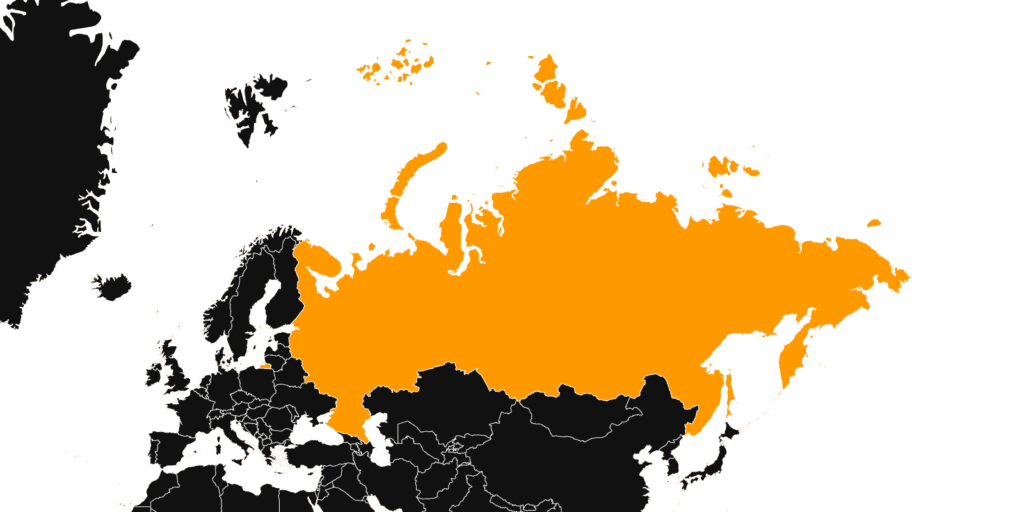
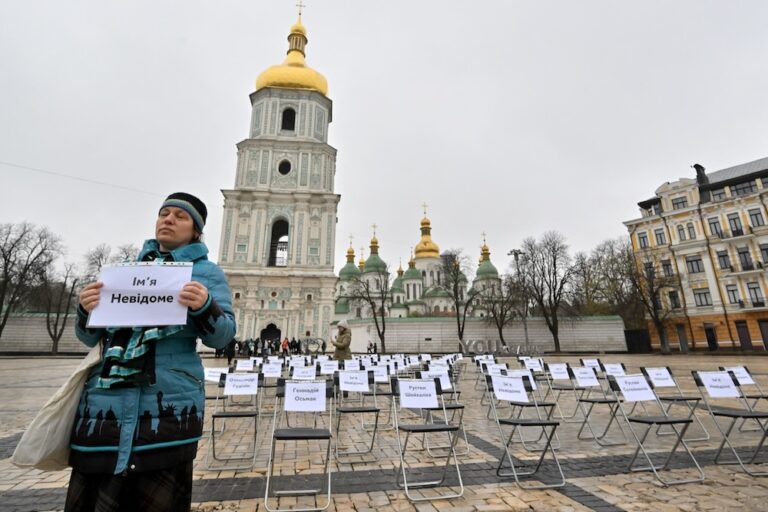
Ukraine: Russia targets Ukrainian journalists to cover up war crimes
“The Russians had pre-made lists of Ukrainian journalists and purposefully detained and kidnapped them. This was done to prevent the media from reporting on Russia’s crimes to the world” – IMI
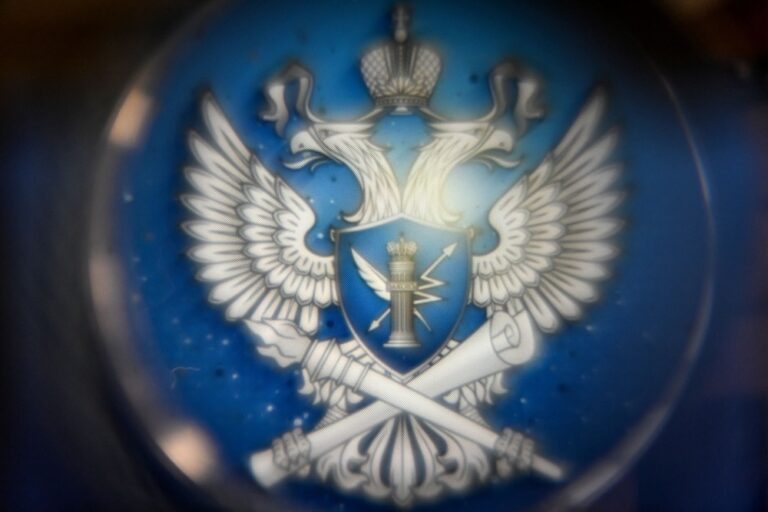
Foreign tech companies cave to Russia’s censorship demands
“Tech companies find themselves vulnerable to blocking and other forms of pressure by Russian authorities. However, this does not give the companies carte blanche to enable the Kremlin’s outrageous violations of human rights online” – HRW
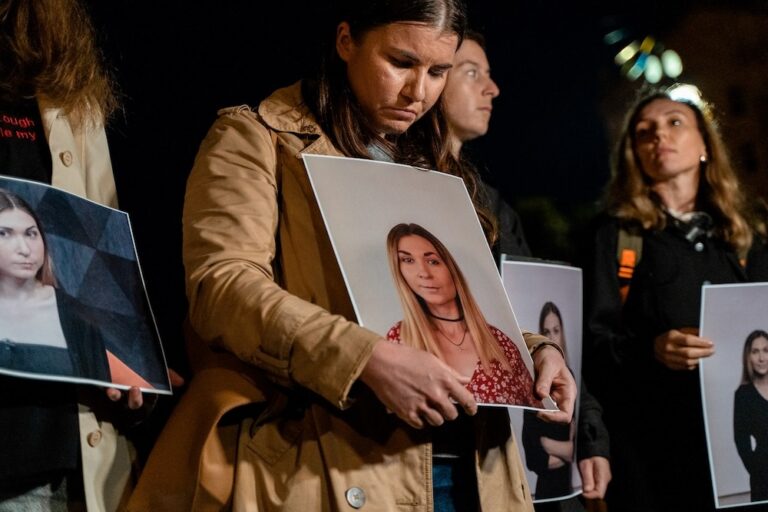
Ukraine: 13 journalists killed at work in first 1,000 days of Russia’s invasion
Some journalists have been killed as a result of Russian shelling, either indiscriminate or targeted, while others were likely killed in extrajudicial executions. Dozens more have been wounded.

Ukraine: 1,000 days of war have seen 329 media outlets forced to close
The most common reasons for closing down were the Russian occupation of territories, which saw 117 media outlets closed, and financial difficulties caused by the war, which resulted in 96 closures.

RSF presses criminal charges against ‘X’ over disinformation
After ‘X’ failed to address disinformation about RSF on its platform, the press freedom group is now pursuing the matter via the French courts, arguing that ‘X’ is complicit in disseminating false information and identity theft.

ECtHR finds that Russia’s “foreign agents” law violates right to free expression
“This decision brings attention to the problematic nature of foreign agent-style laws, which are proliferating as governments, including those of Georgia and Turkey, attempt to stifle criticism” – ARTICLE 19
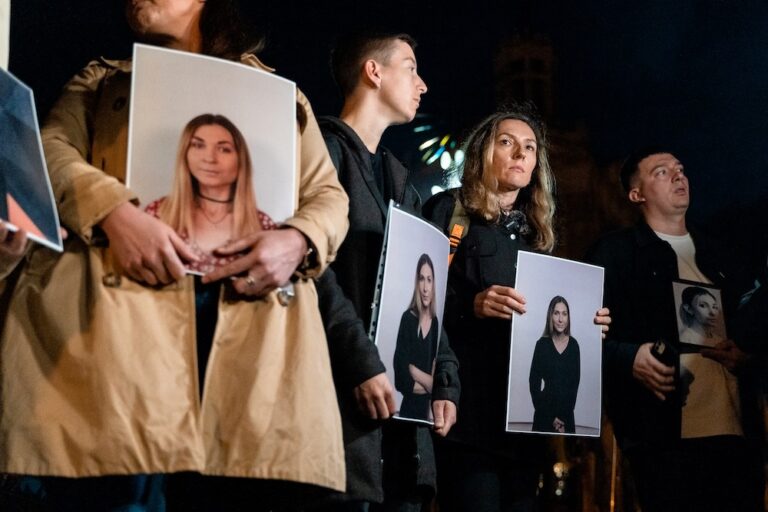
Russia has committed 644 crimes against media in Ukraine
In October, several media outlets and journalists received identical emails with bomb threats. Ukrainian police said the threats came from Russian IP addresses.
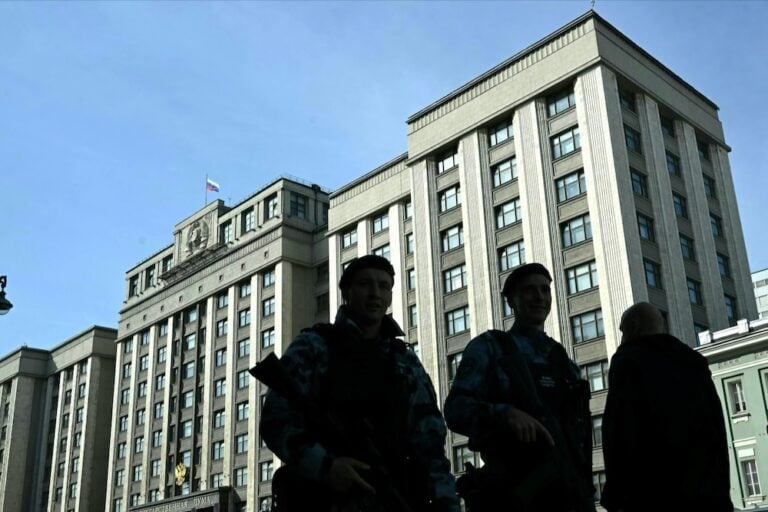
Russia: Draft law aims to ban “propaganda” about so-called child-free lifestyles
The ruling United Russia party proposed the bill, saying it will protect “traditional” and “family values,” prevent the “degradation of public institutions,” and counter “depopulation”.
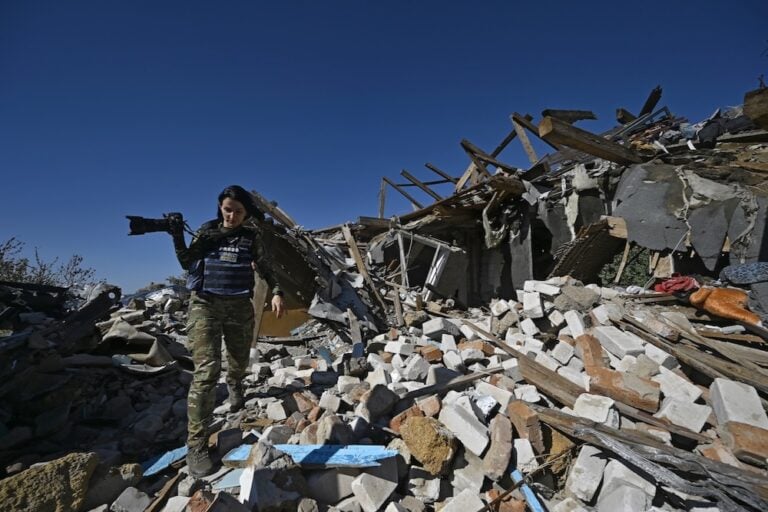
New RSF report calls for fund to rebuild Ukraine’s media landscape
Since Russia’s invasion, Ukrainian media have shown exceptional resilience, but their situation remains fragile: journalists are under threat and media infrastructures are partially destroyed.

Ukranian journalist Viktoria Roshchina dies in detention in Russia
“Responsibility for her death lies with the Russian authorities, who detained her for daring to report the truth on the Russia-Ukraine war. Ukrainian and Russian authorities must do everything in their power to investigate Roshchina’s death” – CPJ
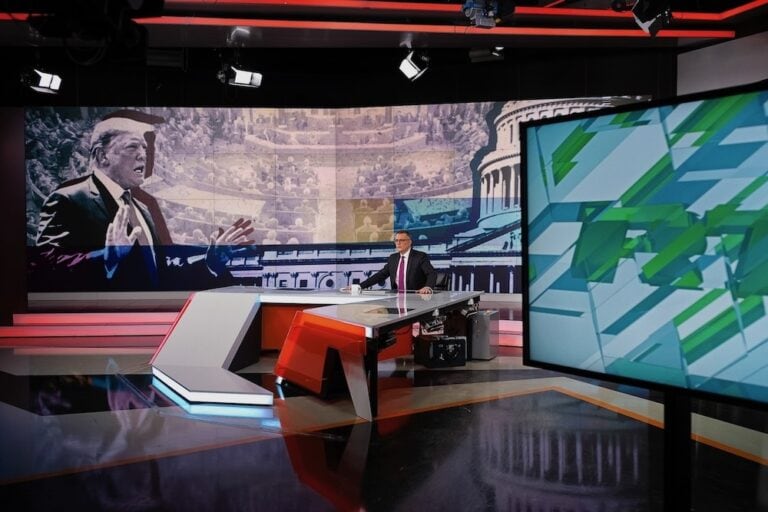
RSF launches ‘The Propaganda Monitor’ project
‘The Propaganda Monitor’ aims to expose the many faces and tactics behind propaganda worldwide, bolstering the public’s understanding of the information space and helping them navigate it more safely.

Russian “Doppelgänger” campaign spoofs media websites to spread disinformation
The “Doppelgänger” campaign uses cybersquatting practices, through which Russian sources lease internet domains that clone legitimate media websites in order to spread false, pro-Russia narratives.
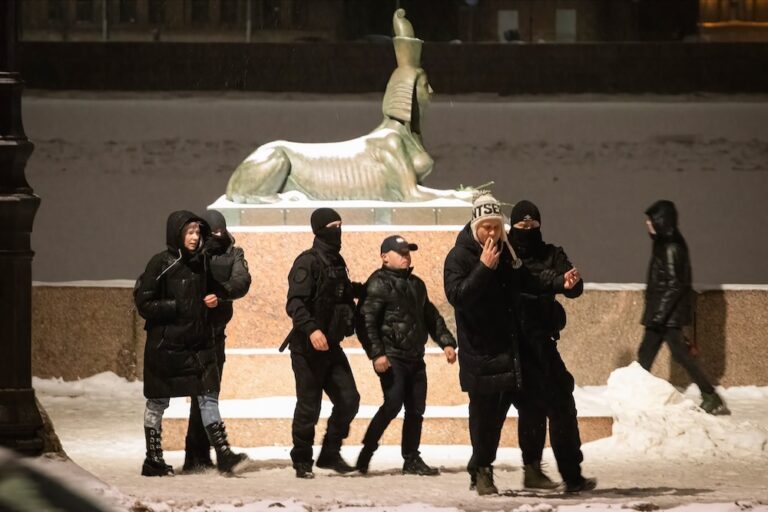
UN: Renew Russia Special Rapporteur
“Given the severity of the repression, the closure of civic space, and the continued targeting of human rights defenders, lawyers, journalists and peaceful protesters, the role of the Special Rapporteur remains critical.”

Russia: Life for queer people after ban on LGBTQI+ “movement”
“Ayan believes the ban on LGBTQI+ people is intended to ‘remove people from the information field, to make them completely invisible.’ And you can do whatever you want to the invisible.”
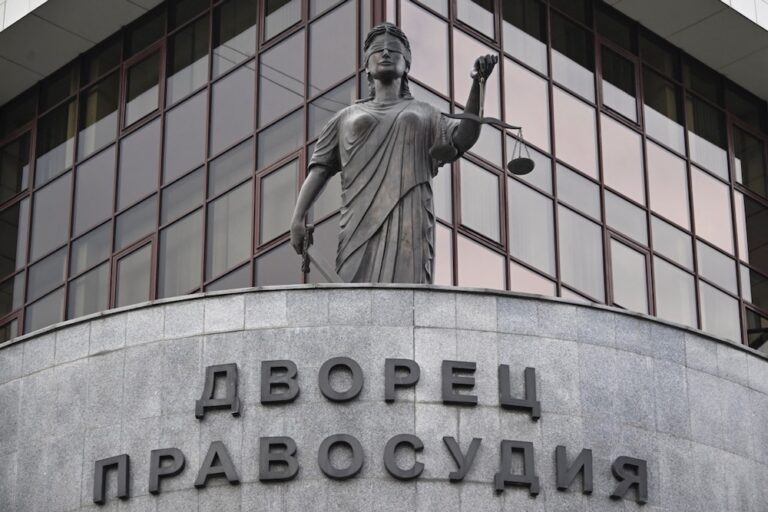
New HRW report examines Russia’s legislative assault on civic space
“The Russian government’s dismantling of civic freedoms since its full-scale invasion of Ukraine in February 2022 is a dramatic escalation of its sustained assault on fundamental rights spanning more than a decade” – HRW
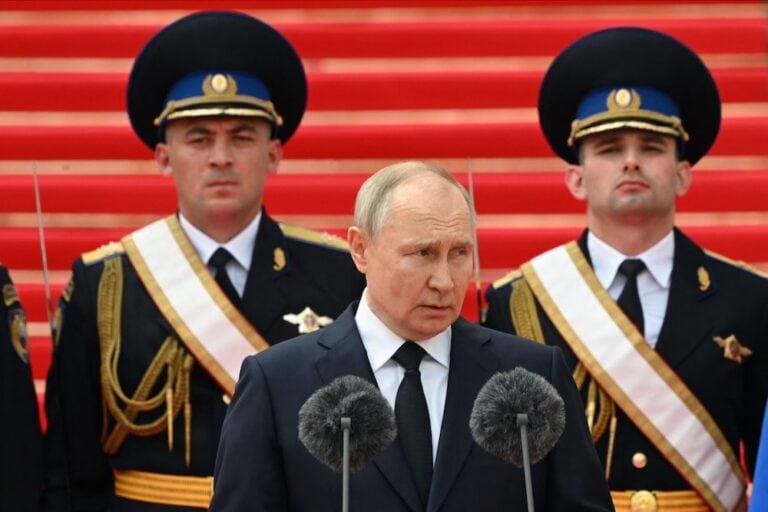
How Russia silences critical coverage of its war in Ukraine
From criminalising “fake” news about the war to expanding “foreign agent” and “undesirable” designations, Russia is facing the “biggest press freedom crisis” in its recent history.